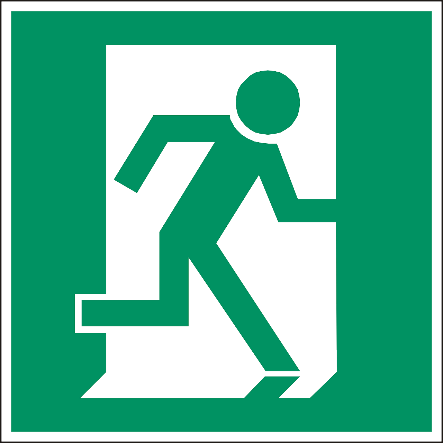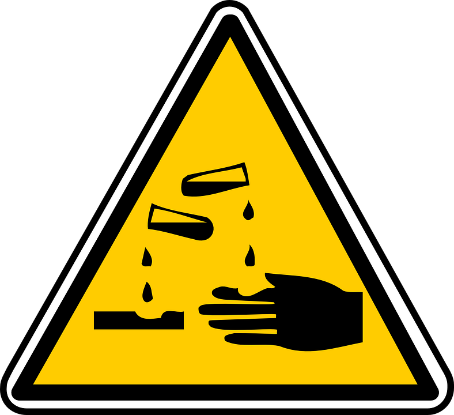What colours do health and safety signs have to be?
Signs are important in health and safety and whilst a good behavioural safety strategy is needed to ensure they are read and complied with, having them is also important from a compliance perspective.
A health and safety sign is any sign that is used to convey information about the safety of a given area or item. Some of the most recognisable examples include:
- Hard hat area signage
- Wet floor signage
- Suspended loads signs
- the COSHH symbols and signage
They are used to convey the danger of a certain situation or sometimes to provide a reminder for when workers need to wear the correct PPE. The different types of health and safety signs all have their different designs and colours which are used to help differentiate them from one another.
1. Mandatory safety signs (Blue)
Mandatory health and safety signs signal the need for certain behaviours. It conveys information that you must comply with to be safe. These signs must be blue and usually have a white symbol on a blue background. They are often used to notify those of the need to use PPE.

2. Fire safety signs (Red)
Fire safety signs provide emergency information on the escape route needed in the event of a fire. These health and safety signs can also provide information on areas that may be susceptible to fires. The law that requires that these health and safety signs are red.
3. Prohibition safety signs (Red)
Prohibition signs are used to signify the prohibition of a certain act or event. These health and safety signs are required to be red. Prohibition signs show workers what they cannot do in a workplace and usually have a black safety symbol within a red crossed circle.
4. Emergency escape/first aid safety sign (Green)
Emergency escape and first aid signs are used to show information that indicates a safe escape route or the route to first aid facilities. These health and safety signs are required to be green, and usually have a white symbol on a green background.
5. Warning safety signs (Yellow)
These health and safety signs are used to show a specific danger that may be present within a workplace. They can indicate a general hazard/danger and are sometimes known as hazard/caution signs. These health and safety signs need to be yellow/amber and are usually characterised by a black symbol on a yellow background.
What do I need to do as an employer?
Employers need to take all the necessary precautions to ensure their workers are kept as safe as they can be in the workplace. The types of signs needed will depend on the workplace. For example, the signage needed in a warehouse or construction site is much different from any that might be necessary for an office. According to the Health and Safety Executive, employers need to:
- explain unfamiliar signs to employees and tell them what the sign requires them to do
- clean and maintain the safety signs
- ensure road traffic signs are used in workplaces where necessary
It is also worth stating that signs do not need to be included in workplaces where they will not reduce the risk of an incident or if the risk itself is not significant. This gives employers some leeway on the signs that they chose to use. Despite this fact, we recommend following the correct signage procedure and any regulations outlined in the health and safety act to make sure you are compliant, and your workers are safe.
It is also worth noting that businesses should be mindful of their Covid-19 signage policy, especially with workers heading back into the office.
Having a good understanding of the COSHH symbols will also help you to get a good safety sign plan in place within your workplace. The video below illustrates the COSHH symbol signs and what they mean.
Sign up to the HSE Network for access to our full content
If you want full and exclusive access to the latest content in the forms of videos and health and safety insights from HSE Network then feel free to sign up for a free account. This gives you access to our entire backlog of video interviews and of course the HSE Virtual Series Congress webinars.



